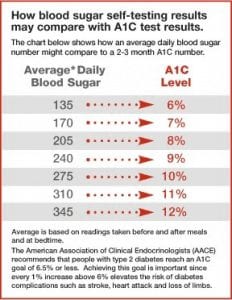 Is Tight Blood Sugar Controls Best for Type 2 Diabetes: Should persons with type 2 diabetes keep their blood sugar levels under strict control, resulting in their A1C levels being the same as a person who does not have type 2 diabetes?
Is Tight Blood Sugar Controls Best for Type 2 Diabetes: Should persons with type 2 diabetes keep their blood sugar levels under strict control, resulting in their A1C levels being the same as a person who does not have type 2 diabetes?
There are known benefits to keeping the blood sugar levels under tight control, but there is also a down side known as “insulin reactions” (hypoglycemia).
A true answer to the benefit of extremely tight control is still unknown.
This is the result of a report that was published by the German Institute for Quality and Efficiency in Health Care (IQWIG) that was recently issued. This compilation report was issued at the request of the Federal Joint Committee (G-BA). IQWIG was requested to prepare the report in a rapid form, meaning no preliminary reports were published. The study involved IQWIG using a randomized controlled trial comparing two treatment strategies in patients with type 2 diabetes. The “test” group measures’ goals were to lower blood sugar levels to near normal levels. In the “control” group measures’ goals there was no attempt to keep blood sugar levels at normal levels. With these two criteria in mind, the goal was to assess the benefit or harm of the interventions for “mortality (all-cause mortality), late complications of diabetes (heart attacks, strokes, damage to the kidneys or eyes, etc.), as well as quality of life.”
IQWIG included seven studies. In those seven studies, 28,000 had participated. Four studies had already been conducted between the 1960s and the 1990s, and the remaining three were after the year 2000. The ethnic origin was specific, Japan, and in some of the studies medications were used that are no longer in use. Rosiglitazone was listed as one such drug.
IQWIG analyzed these studies and their conclusion was that there were no differences between the two groups of “relevant aspects of treatment.” There was no identifiable “advantage or disadvantages found neither for all cause mortality nor for fatal heart attacks, (fatal and non-fatal) strokes, end-stage renal disease (and its pre-stages), amputations, or pre-stages of blindness. Insufficient data were available for the outcomes of quality of life and blindness.”
There were indications that patients with type 2 diabetes did benefit from extremely normal blood sugar levels in the “non-fatal heart attack” area, and it was in this area only. As well, those with the extremely normal blood sugar levels had indications of severe insulin reactions (hypoglycemia) as well as other serious events.
Jurgen Windeler, Director of IQWIG, commented on the current report: “It is quite astonishing: individual interventions, particularly drugs, have in part been well investigated in studies; however, we know relatively little about the advantages and disadvantages of treatment strategies. If doctors are faced with the question as to what they can specifically offer to their diabetes patients, whether they should lower blood glucose levels as much as possible, and in which patients this is a promising (or less promising) approach, they still do not receive satisfactory answers.”
In conclusion, the “few studies available do not allow reliable conclusions.”